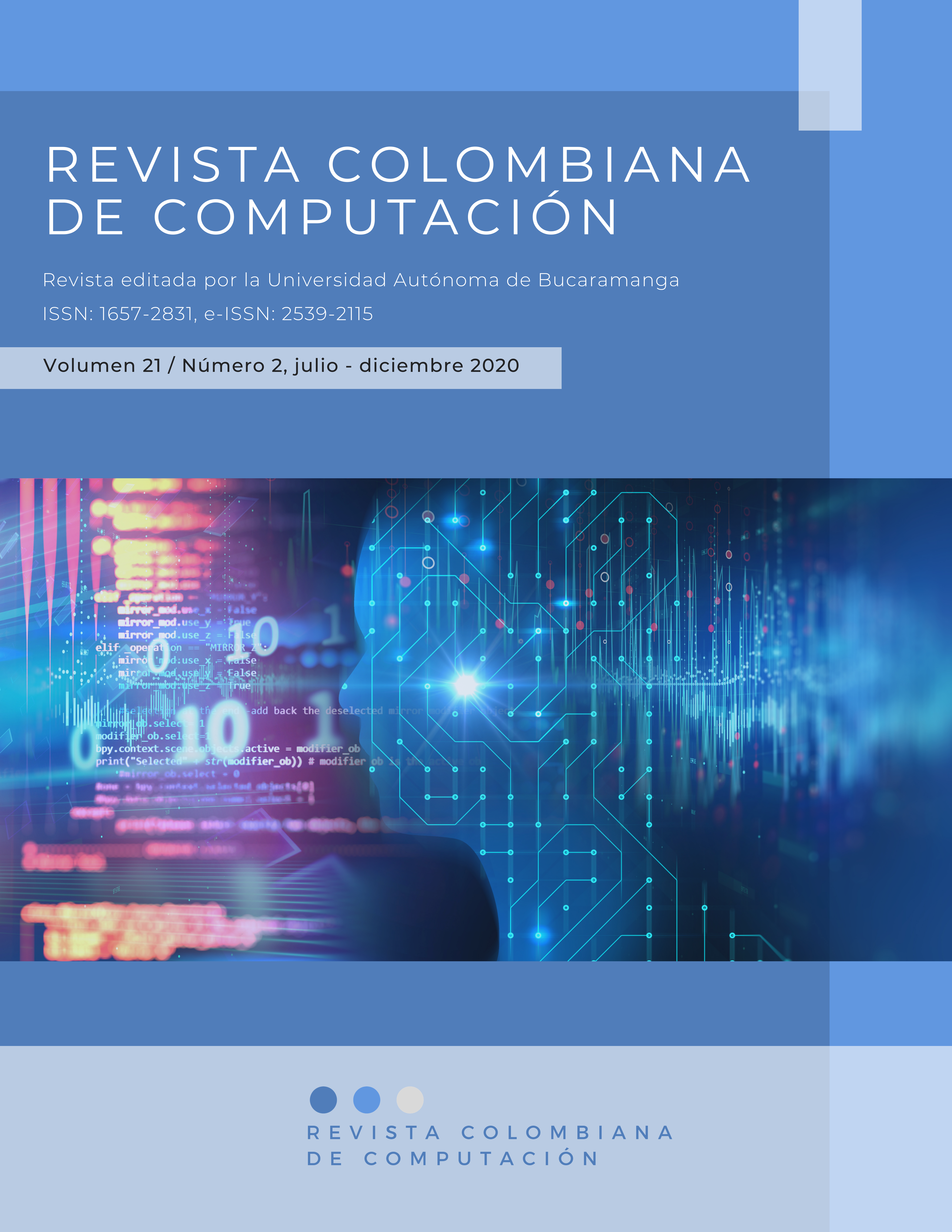Estrategias colaborativas que apoyan la gestión del conocimiento en organizaciones
Resumen
Un trabajo significativo ha abordado el papel del conocimiento y su impacto en las organizaciones empresariales. La construcción de ambientes efectivos implica presión de tiempo y costos, permitiendo al personal buscar soluciones inmediatas desde la gestión del conocimiento (KM). Algunos estudios han demostrado que la generación de conocimiento colaborativo a través del almacenamiento, el acceso, la difusión y la aplicación podría ayudar a las organizaciones a colaborar con empresas asociadas para compartir el conocimiento de la cadena de suministro y mejorar su trabajo. Sin embargo, no está claro cómo estructurar actividades que transmitan una colaboración real. De esa manera, este artículo propone un mecanismo que utiliza estrategias colaborativas que apoyan la transferencia efectiva de conocimiento en diferentes tipos de organizaciones.
Referencias bibliográficas
Collazos, C. A., Guerrero, L. A., Pino, J. A., & Ochoa, S. F. (2003). Collaborative Scenarios to Promote Positive Interdependence among Group Members. In J. Favela & D. Decouchant (Eds.), Groupware: Design, Implementation, and Use. CRIWG 2003. Lecture Notes in Computer Science (pp. 356–370). Springer, Berlin, Heidelberg. https://doi.org/10.1007/978-3-540-39850-9_30
Collazos, C. A., Guerrero, L. A., Pino, J. A., & Ochoa, S. F. (2004). A method for evaluating computer-supported collaborative learning processes. International Journal of Computer Applications in Technology, 19(3/4), 151. https://doi.org/10.1504/IJCAT.2004.004044
Delgado, V. A., Collazos, C. A., Fardoun, H. M., & Safa, N. (2017). Collaboration Increase Through Monitoring and Evaluation Mechanisms of the Collaborative Learning Process. In G. Meiselwitz (Ed.), Social Computing and Social Media. Applications and Analytics. SCSM 2017. Lecture Notes in Computer Science (pp. 20–31). Springer, Cham. https://doi.org/10.1007/978-3-319-58562-8_2
Dillenbourg, P., & Jermann, P. (2007). Designing Integrative Scripts. In F. Fischer, I. Kollar, H. Mandl, & J. M. Haake (Eds.), Scripting Computer-Supported Collaborative Learning (pp. 275–301). Springer US. https://doi.org/10.1007/978-0-387-36949-5_16
Engeström, Y. (1987). Learning by Expanding: An Activity Theoretical Approach to Developmental Research. Orienta-Konsultit.
Fussell, S. R., Kraut, R. E., Lerch, F. J., Scherlis, W. L., McNally, M. M., & Cadiz, J. J. (1998). Coordination, overload and team performance: effects of team communication strategies. Proceedings of the 1998 ACM Conference on Computer Supported Cooperative Work, 275–284.
Kagan, S. (1992). Cooperative learning. Resources for Teachers.
Kim, D. J., & Yang, T. A. (2010). A New Approach for Collaborative Knowledge Management: A Unified Conceptual Model for Collaborative Knowledge Management. Proc. 6th Americas Conference on Information Systems, 131.
Kirsch-Pinheiro, M., Valdeni de Lima, J., & Borges, M. R. S. (2003). A framework for awareness support in groupware systems. Computers in Industry, 52(1), 47–57. https://doi.org/10.1016/S0166-3615(03)00068-X
Kluge, J., Stein, W., & Licht, T. (2002). Knowledge Unplugged: The Mckinsey & Company Global Survey On Knowledge Management. Palgrave Publishing. https://doi.org/10.1080/1097198X.2002.10856333
Kolfschoten, G. L., Briggs, R. O., Appelman, J. H., & de Vreede, G.-J. (2004). ThinkLets as Building Blocks for Collaboration Processes: A Further Conceptualization. In G.-J. de Vreede, L. A. Guerrero, & G. Marín Raventós (Eds.), Groupware: Design, Implementation, and Use (pp. 137–152). Springer, Berlin, Heidelberg. https://doi.org/10.1007/978-3-540-30112-7_12
Kollar, I., Fischer, F., & Hesse, F. W. (2006). Collaboration Scripts – A Conceptual Analysis. Educational Psychology Review, 18(2), 159–185. https://doi.org/10.1007/s10648-006-9007-2
Lewkowicz, M. (2000). Conception de collecticiels pour la gestion coopérative des connaissances.
Ludvigsen, S., Cress, U., Law, N., Rosé, C. P., & Stahl, G. (2016). Future-looking conversations in CSCL. International Journal of Computer-Supported Collaborative Learning, 11(3), 255–262. https://doi.org/10.1007/s11412-016-9242-6
Migdadi, M. M., Zaid, M. K. S. A., Yousif, M., & Almestarihi, R. (2018). An empirical examination of collaborative knowledge management practices and organisational performance: the mediating roles of supply chain integration and knowledge quality. International Journal of Business Excellence, 14(2), 180–211. https://doi.org/10.1504/IJBEX.2018.089149
Nonaka, I., & Toyama, R. (2015). The Knowledge-creating Theory Revisited: Knowledge Creation as a Synthesizing Process. In The Essentials of Knowledge Management (pp. 95–110). Palgrave Macmillan UK. https://doi.org/10.1057/9781137552105_4
Slavin, R. E. (1989). Cooperative learning and student achievemen. In R. E. Slavin (Ed.), School and classroom organization (pp. 129–156). Lawrence Erlbaum.
Stahl, G. (2017). Group practices: a new way of viewing CSCL. International Journal of Computer-Supported Collaborative Learning, 12(1), 113–126. https://doi.org/10.1007/s11412-017-9251-0
Weinberger, A., Kollar, I., Dimitriadis, Y., Mäkitalo-Siegl, K., & Fischer, F. (2009). Computer-Supported Collaboration Scripts. In N. Balacheff, S. Ludvigsen, T. de Jong, A. Lazonder, & S. Barnes (Eds.), Technology-Enhanced Learning (pp. 155–173). Springer Netherlands. https://doi.org/10.1007/978-1-4020-9827-7_10
Wiig, K. M. (1997). Knowledge management: Where did it come from and where will it go? Expert Systems with Applications, 13(1), 1–14. https://doi.org/10.1016/S0957-4174(97)00018-3












